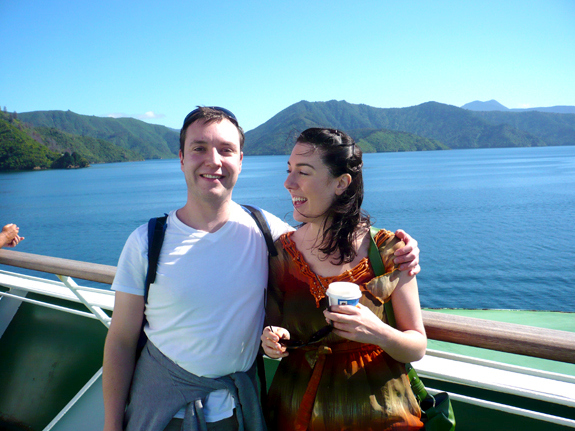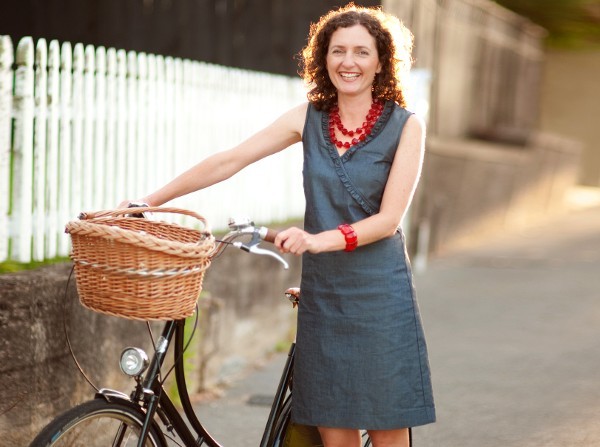You hear about an international essay competition, asking you to write a letter to the UN Secretary General. What do you do? If you’re Auckland high school student Nardos Tilahun, you enter it … and win an all-expenses-paid trip to Brazil. Read on for Nardos’s story and winning essay …
Nardos Tilahun won an all-expenses-paid trip to Brazil thanks to her insightful essay on sustainability
You hear about an international essay competition, asking you to write a letter to the UN Secretary General. What do you do?
A) Nothing. Think: “What chance do I have against students from all over the world?”
B) Enter. Think: “What do I have to lose?”
If you’re Nardos Tilahun you choose B. This Year 10 student from Auckland Girls’ Grammar School entered the 2012 Living Rainforest International Essay competition … and won! Her prize? A trip to Brazil to attend the Rio+20 Earth Summit in Rio de Janeiro in June, for her, a parent and her teacher.
The competition asked contestants to write a letter to the UN Secretary General to share their ideas on what governments and world leaders should be doing to build a more sustainable future on planet Earth. When considering what she would write, Nardos thought back to a video clip she had seen called ‘The Story of Stuff’ which examined the impact of consumerism on the environment. She did further research of her own and, the night before the deadline, wrote her essay.
She entitled her essay ‘Exploiting Consumerism to Save our Planet’ and argued that since the human desire to consume won’t change, we should change the kinds of products that are produced. One of her suggestions was that rather than mining for natural resources and ruining the environment, we should be mining our landfills for material that can be recycled into new products. She also proposed that governments offer incentives to companies to become more eco-friendly through taxing those who not sustainable in their products or business practice, or not restricting their ability to advertise.
Over eight hundred students from all over the world entered the essay competition and the other finalists came from far flung places such as Cameroon, Kazakhstan, Russia, Singapore, Samoa, Nepal, the Seychelles and the Philippines.
Nardos and her family came to New Zealand in 2004 from Ethiopia as political asylum seekers. She is very excited about this opportunity to visit Brazil and observe the Rio+20 Earth Summit in action.
The United Nations Conference on Sustainable Development, known as Rio+20, will be held in Rio de Janeiro from 20-22 June 2012. It is expected to be the biggest meeting on the international calendar in 2012, and 115 Heads of State and the UN Secretary General Ban Ki-Moon will be in attendance. Nardos hopes to be able to deliver her letter in person!
EXPLOITING CONSUMERISM TO SAVE OUR PLANET
Dear Mr UN Secretary General,
Many environmentalists claim that overconsumption is the root cause of the destruction of our planet. Capitalism is a system where profits are generated by things being (in Victor Lebow’s words) “consumed, burned up, worn out, replaced, and discarded at an ever increasing pace”. This famous economist once stated that “our enormously productive economy demands that we make consumption our way of life, that we convert the buying and use of goods into rituals, that we seek our spiritual satisfaction, our ego satisfaction, in consumption”. He explains that “the measure of social status, of social acceptance, of prestige, is now to be found in our consumptive patterns”. However, I believe that Victor Lebow’s theory can be manipulated to build a sustainable future.
Businesses globally exercise Lebow’s theory to their advantage. They have adapted two strategies called ‘planned obsolescence’ and ‘perceived obsolescence’. The first, planned obsolescence, is where a product is created to be unproductive or out of date within a given period of time. Secondly, perceived obsolescence is where companies make people want to purchase the latest version of a product.
Part of planned obsolescence is reducing the price of a product to make people buy them more often. Most consumers would want to buy eco-friendly products but due to financial reasons, revert to buying cheaper non-recyclable goods. I suggest that governments should raise the shipping and duty taxes or introduce a new system of taxation on items that have un-recyclable components or release harmful toxins after being discarded. The revenue from taxation could then be used to subsidise the cost of producing eco-friendly items. The reduction of prices in shops would increase the consumption of sustainable products. This would also push companies to make their products more sustainable to minimise their costs and to regain former customers.
We can encourage the public to recycle by placing multiple recycling bins throughout public domains. Separate bins for separate materials such as paper, plastic and food waste can help reduce reusable materials from heading to land fills and make the recycling process easier.
Perceived obsolescence is caused by companies advertising, telling us what is in fashion and encouraging us to shop in order to keep up by buying things, whether it be the latest iPod or the newest burger on the menu. This is what drives consumerism.
But, what if we were to make sustainability fashionable? We need to support and challenge designers to create things that last or can break down and be recycled into the next modern item.
And, what if governments regulated advertising so only companies that sold sustainable products could buy TV air-time? If this happened, consumers would be demanding more durable, environmentally friendly products and, over time companies would produce them.
And, what if we were to meet those demands for new products by relying on raw materials that come from landfills? We would be greatly reducing the damage on the environment while acquiring more land. Rather than destroying our natural environment by mining for minerals and oil, we should “mine” our landfills for things we can recycle. My research has found that waste materials can be processed to create a building material that is stronger, cheaper to produce and more sustainable than cement.
Our exceedingly wasteful way of life demands that we change our style of consumption to a more sustainable kind.
If people seek self-satisfaction in shopping, it must be without compromising the environment’s ability to rejuvenate. Our “measure of prestige” should now to be found in our innovation and sustainable patterns. The ever accelerating growth of our population will increase our consumption of natural resources. Governments must work to ease this burden on the environment by making sustainable products and green technology widely available in everyday life. Our consumables need to be able to be re-consumed: a TV can be repaired, old jeans can be recycled, a forest replaced.
The fight for our environment is a struggle to save ourselves and the whole of humanity.
Yours sincerely,
Nardos Tilahun







